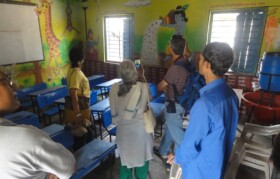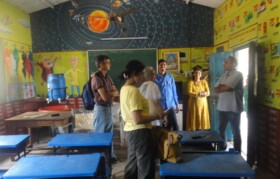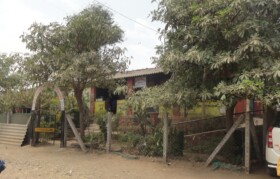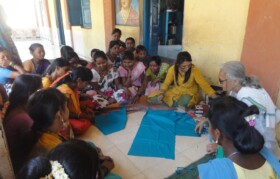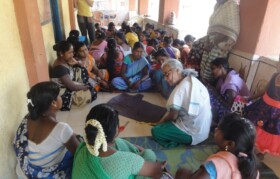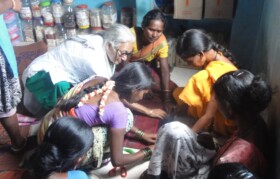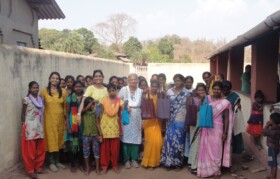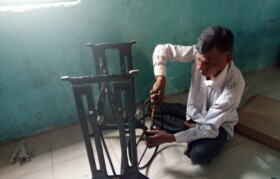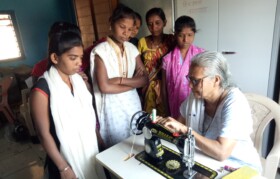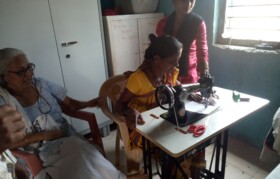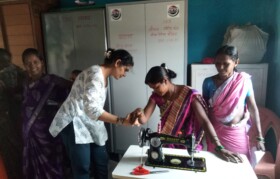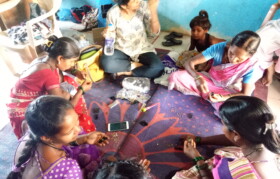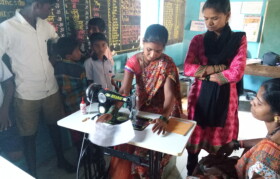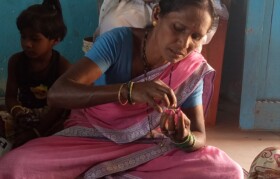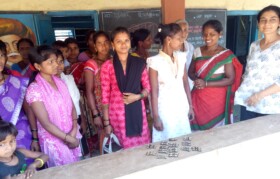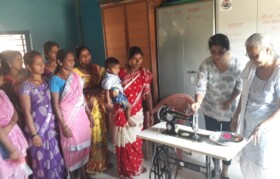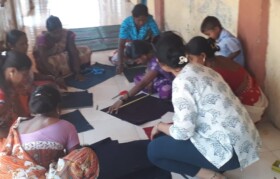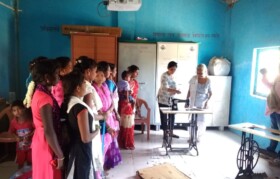Khomarpada School Review and KP Training on Sewing Machine

This post has already been read 1241 times!
The academic session ended much before the scheduled time this year due to drought and the training of the teachers for the parliament election. We decided to focus on inducting new schools and community related work.
Khomarpada, which is on the west of Vikramgadh, was identified as one of the schools, which we want to cover under our NGO activities. It is a small school with ordinary infrastructure. However, the teacher has taken lot of effort to improve the vegetation not only in the school but even at the village level. Like any other Zilla Parishad school, kids get only rice & dal as part of the mid-day meal. Teacher – with his own initiatives – added more vegetables to make it more nutritious. Additionally, he has encouraged villagers to grow vegetables at large scale apart from taking the conventional rice crop. We would be inducting this school starting June 2019. We would use the expertise of the teachers to improve vegetation across the schools.
As a part of our community work with the villagers, we want to train the ladies in assembling the jewelry or stitching the clothes etc. Once the plastic bags were banned, the shopkeepers needed low cost cotton carry bags for their customers. During our survey we found that a few ladies in Janathepada sold 2000 bags @30 Rs each to a few local shopkeepers. We took an expert along with us, who had worked in similar environment and trained ladies. We identified Kaspada as the starting point. The initial workshop, wherein the ladies were taught the basic nuances of stitching was attended by 40 odd ladies. Subsequently, Suhrid foundation shipped three stitching machine, which would be meant for those ladies in future. A session was also carried out on 20-Apr-10 to train them on those machines. We would start off with the simple bags but this project is expected to generate more work for the ladies over a period of time.
We would be taking up the work related to water conservation at Kaspada this year. It would require desilting at multiple places, strengthening existing checkdam, making gabion wall to block the stones and mud entering into reservoir area of dam. This project would be done in “shramdan” model where it would also generate additional source of income for the villagers.
In most of the other drought affected areas, people are ready to execute any project to conserve water during rains and are ready to put in effort. In some villages of Vikramgadh and surrounding areas, their approach is more individualistic wherein they try to find solution for their own family (rather than the community as a while) during the natural calamity. We need to be working closely with villages and community to change mind set to view water crisis as community problem and come together to resolve it – for generations to come.

